The Professional Women’s Hockey League (PWHL) does not resume play until Feb. 3, and PWHL Boston does not until Feb. 4. The break, now that we have a decent six-game sample size, is a good time to analyze Boston’s play to date.
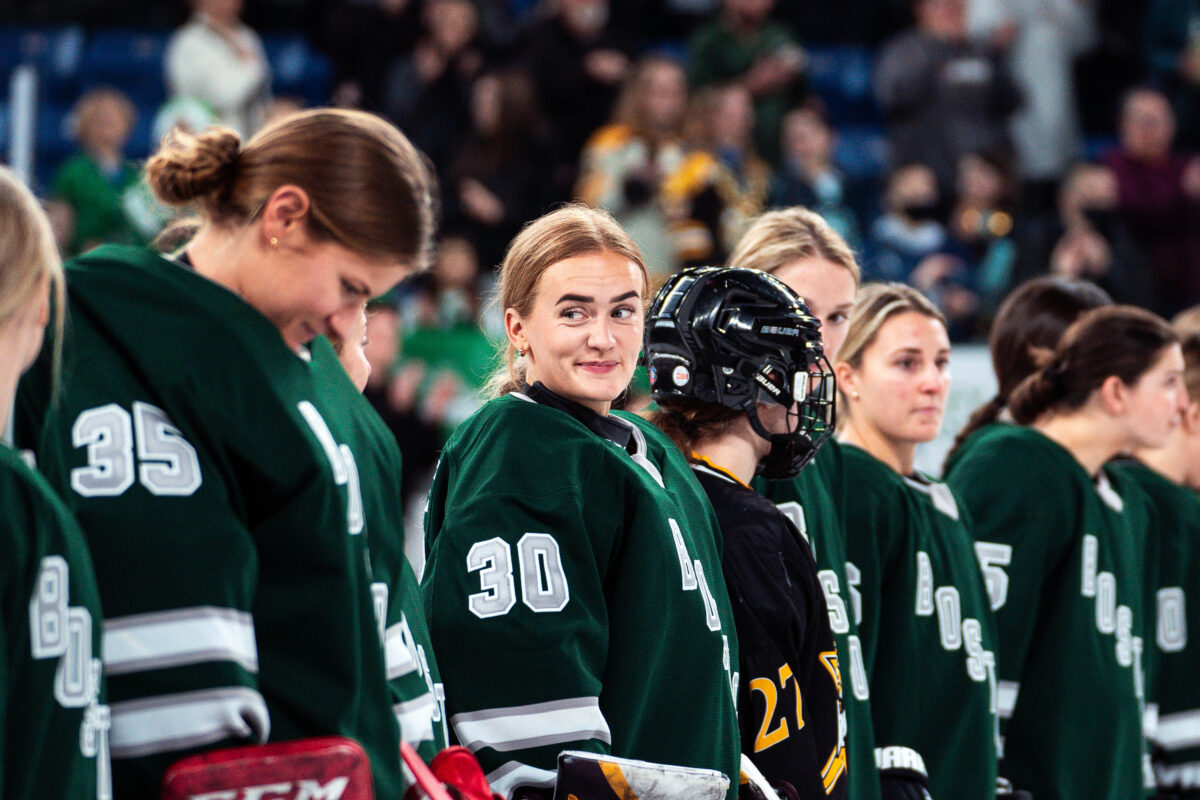
The team has shown some strengths and a few weaknesses thus far. With six games played to many of their opponents’ eight, Boston is in third place in the standings (4-2-0-0 with 10 points), and with two games in hand, two regulation wins would leapfrog the opponents ahead of them.
No. 1: Alina Müller Is On Fire
Despite playing two fewer games than most of her opponents (PWHL Ottawa has only played six as well), Alina Müller, the third overall pick in the PWHL Draft, leads the league in assists (seven) and is tied with PWHL New York’s Alex Carpenter for the league lead in points (nine).
Her creativity and awareness have been key to her success: a highlight reel would show you a bounty of no-look passes. Müller is also tied with three other Boston players for the team lead in goals (two), one coming on the power play.
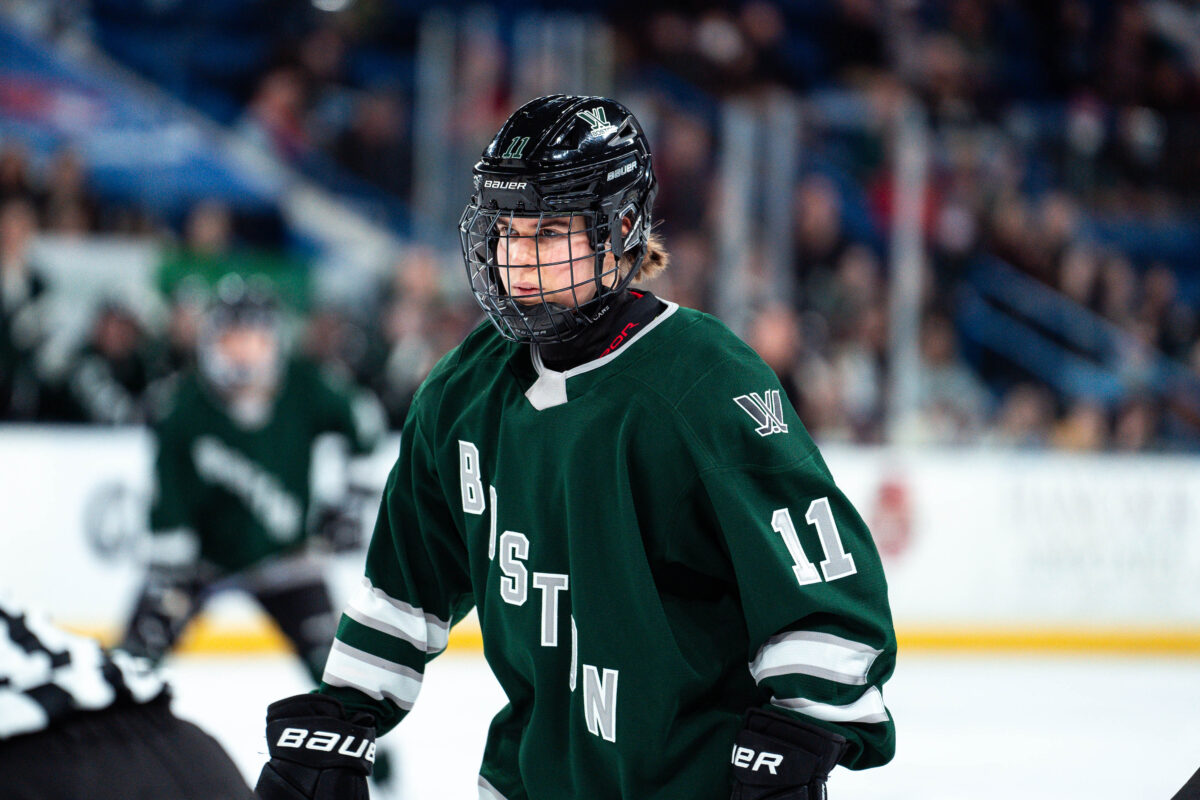
She’s also leading the team in faceoffs, gliding to the dot for 125. Directly behind her in that category is Hannah Brandt, who has only taken 75 in comparison. Müller has only won 40.8% of those, however, but it’s clear Boston is trying to get her on the ice whenever they can – and for very good reason.
No. 2: Gabel & Müller Are a Dynamic Duo
Oh, hey, it’s Müller again – but this time, I want to focus on her chemistry with winger Loren Gabel. Gabel leads the team in goals (three), all of which have been assisted by Müller. Two of those no-look passes I mentioned earlier came on Gabel’s goals. One of them was a drop pass as they took the blue line, and another was while Müller was being challenged behind the net and shoveled a pass out front to Gabel, who was flying off a line change.
RELATED: Get to Know the 2024 PWHL Boston Players
That second example came in a game where Boston juggled its lines, separating the two players. In about five seconds of an overlapping shift, they were able to produce. It’s also worth mentioning that one of Gabel’s two assists came on a Müller goal, and the other was a secondary assist on a goal where Müller took the primary assist.
It just seems Gabel and Müller are clicking, even on plays where they are thwarted by a goal.
No. 3: Boston Has Depth Scoring
You can have a few stars leading the charge, but it’s critical for winning teams to have production up and down the lineup. In six games, it’s clear Boston is a well-rounded roster. As mentioned before, Gabel leads the team with three goals. Müller is tied with defender Megan Keller and forwards Theresa Schafzahl and Taylor Girard, with two goals. Jamie Lee Rattray, Hilary Knight, Hannah Brandt, Kaleigh Fratkin, and Amanda Pelkey all have one goal.
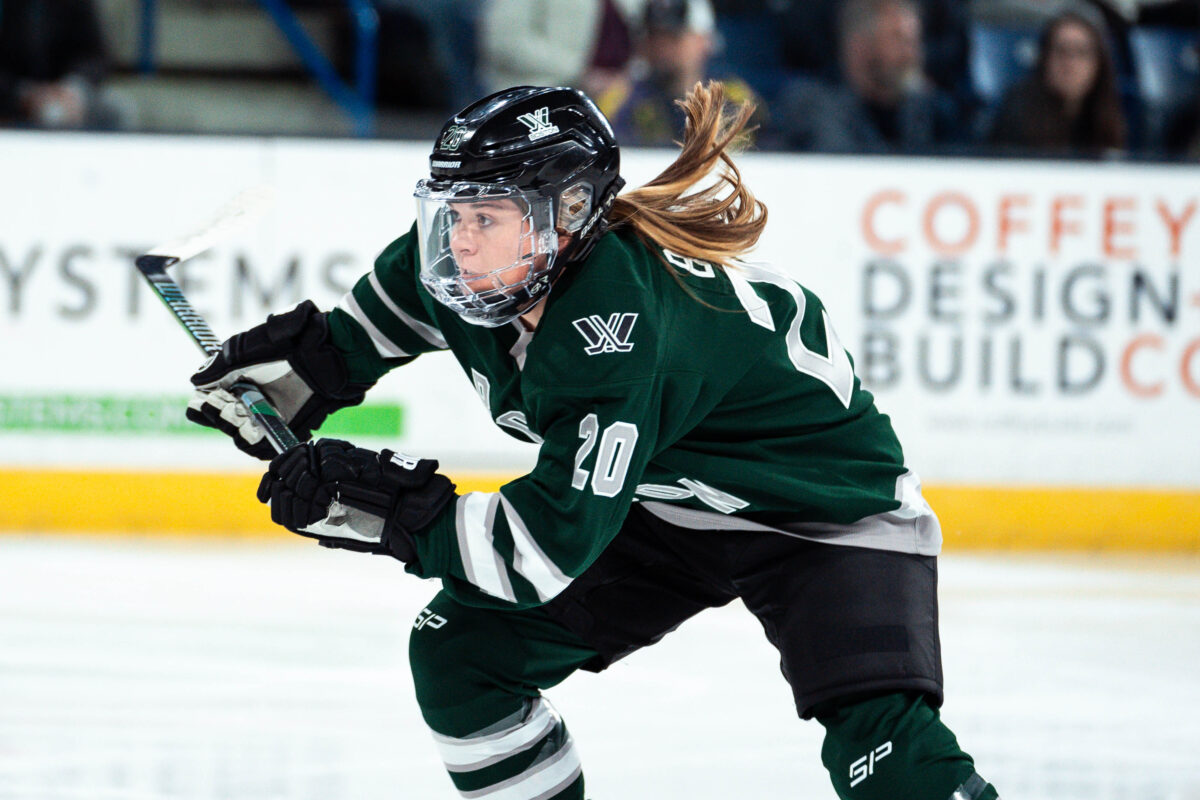
In the NHL’s 82-game schedule, 20 goals is generally used as a milestone – there’s a reason fans, media, and teams note how many 20-goal seasons a player has had and not 10 or 15. The math says in the PWHL’s 24-game season, a 20-goal season roughly equals six goals.
Only three Boston skaters are without a point so far this season. Two are defenders, Sophie Jaques and Jess Healey, while the only forward without a point, Taylor Wenczkowski, has only appeared in four of Boston’s six games thus far.
No. 4: Frankel, Söderberg Splitting The Crease
Netminders Aerin Frankel and Emma Söderberg have each have started three games this season, with Frankel coming in to relieve Söderberg once in a loss to PWHL New York. Frankel leads in goals against average (GAA) and save percentage (SV%) with a 1.91 GAA and .925 SV%. Meanwhile, Söderberg rings in with a 3.36 GAA and .879 SV%.
Both have impressive resumes, but based on their performance and statistics in their careers to date – from college to professional and international play – I expected that Frankel would take the reins while Söderberg would be a backup goalie this season (a solid one, at that.) Going with a tandem has worked out for other teams in other leagues, including another Boston hockey club, and it’s been a decent road thus far for PWHL Boston. However, every other team in the PWHL has a clear starting netminder. It isn’t clear yet if the plan is to go with the tandem or if Boston has been trying to analyze both before declaring a starter.
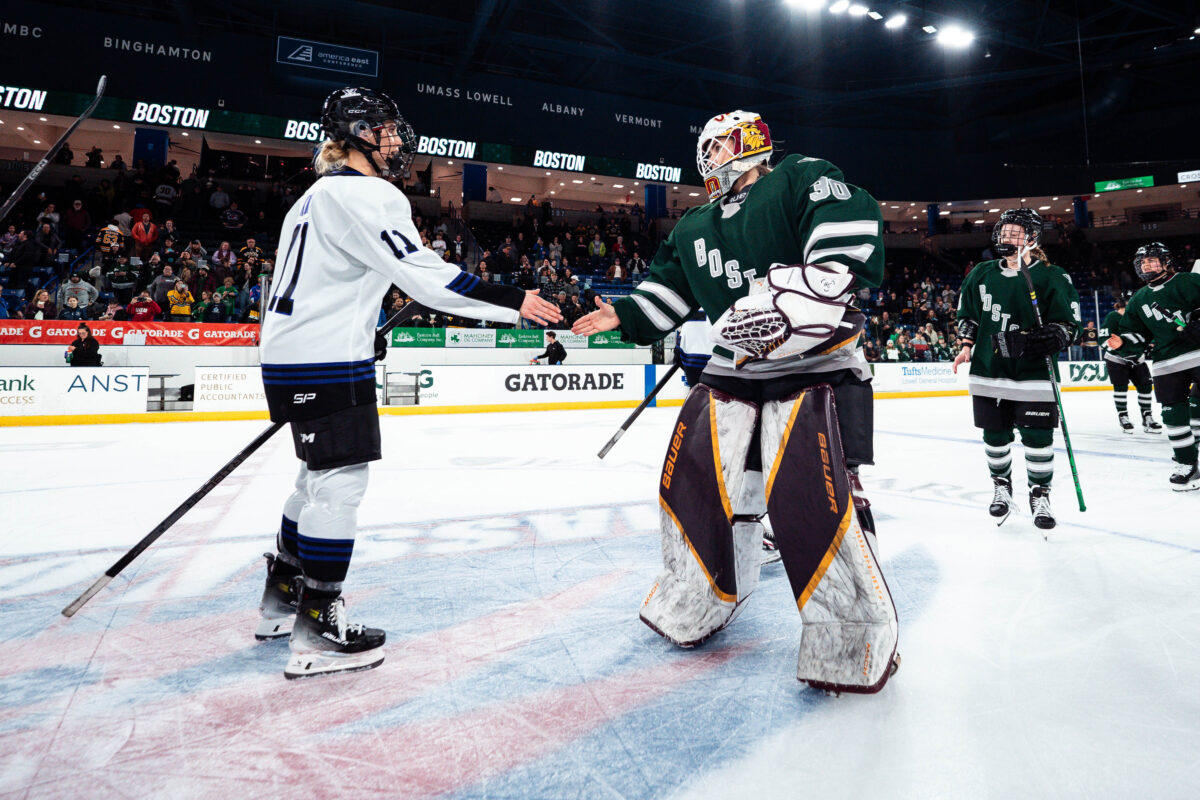
We’ve seen a small sample size, but I believe we’re at the point where Frankel should be taking most of the starts. That’s not a knock to Söderberg, who has been good, but Frankel has simply been better to date. However, Söderberg ought to be getting a decent portion of the playing time. Both goaltenders are young (Frankel is 24, and Söderberg will turn 26 next month). Without a farm system, you have to give your young players ice time to analyze and, hopefully, boost their development.
No. 5: Slow Starts, Power Play Are Weaknesses
Alright, it’s time for some criticism.
While they’ve seemed to sort it out as of late, Boston has seen a number of slow starts offensively this season. In some cases, they’ve overcome it with stellar defense (I’ll get to that soon) and late-game rallies, but other times, it has led to defeat: too little, too late.
RELATED: PWHL Boston Forward Taylor Wenczkowski Suspended
Part of that could be the power play as well. The majority of the time, Boston’s power plays have led to momentum shifts, but execution has been lacking. On 14 opportunities, they’ve only scored twice (a 14.3% success rate) and have given up short-handed goals, also known as a jailbreak. That is still good for third in the league, however, behind New York’s 20.8% power play success rate and Ottawa’s 30%.
Boston hockey fans will be delighted that PWHL Montreal has a 4.2% power play success rate, the worst in the league. Just thought I’d mention that.
No. 6: Defense, Penalty Kill Are Strengths
You need offense to score, but you ultimately need a solid defense to win – unless your game plan is to win 5-4 regularly. Boston does have 16 goals against, only two fewer than PWHL Montreal and New York (18), who have each played eight games. However, I think a few of those goals were ones you’d like to see your goaltender save.
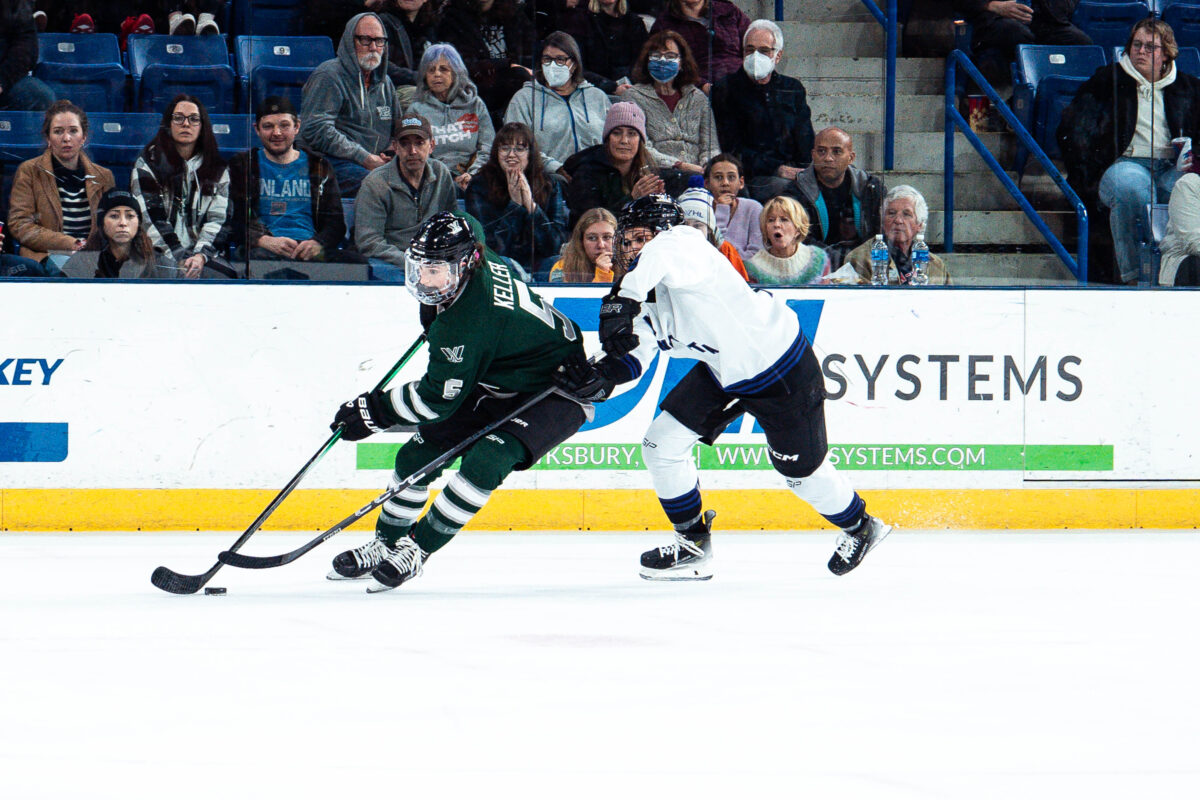
Boston’s defenders have also been solid in the transition game. I’ve been most impressed by Megan Keller’s two-way game, notching two goals and two assists. Following her is Emily Brown with two assists, and Sidney Morin with two as well. Fratkin also has a goal herself, while Jessica DiGirolamo notched one assist. Despite some lapses, Boston’s defenders have been strong – but there is room for improvement.
Only one of Boston’s goals against has come on the penalty kill, and they lead the league with a penalty kill percentage of 92.3%. Shorthanded 13 times, they have an even goal differential, having also scored a jailbreak goal.
The Road Ahead
Boston is in a great position to rise to the top of the standings. They have a foundation to build on with two options in net, a solid backbone in the form of their defense, and are getting scoring throughout the lineup.
Consistency will be key. Boston squares off against Montreal on Feb. 4, and a week off is a great time for a team to work out the sections of their game they need to improve. However, it’s important to sustain what has been winning you games for an entire season, and a win in their first game back would be a great way to set the tone.
